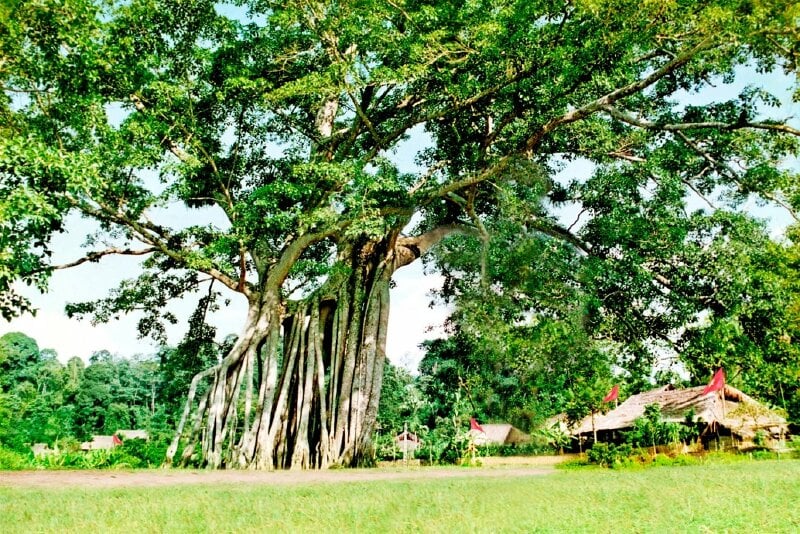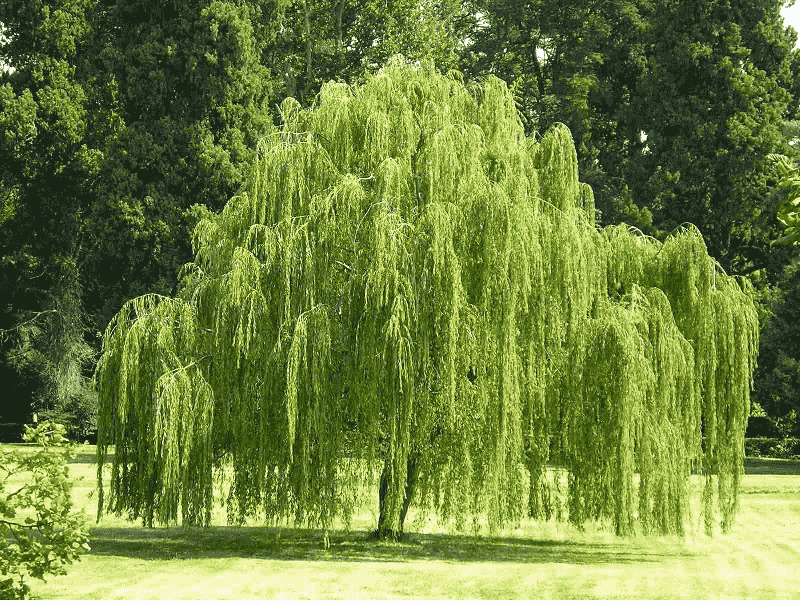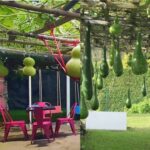There are certain perennial plants that should not be cut down. According to ancient wisdom: “There are five trees in front of the house that must not be cut down, otherwise one will suffer financial ruin and bring disaster upon oneself and one’s family.” What are these trees and why are they so significant?
1. The Big Banyan Tree

According to ancient beliefs, cutting down a large banyan tree is akin to severing the prosperity of future generations of your family.
The banyan tree is a familiar sight in Vietnam, especially for the elderly. This tree can grow to be a giant, with a lifespan of thousands of years, and its canopy can spread over several thousand square meters.
Ancients believed that if there is a large banyan tree around a house, it should not be cut down. The tree provides shade, and if it is an ancient specimen, it is believed that evil spirits gather in its branches. Cutting it down would release these spirits, bringing ill fortune to the family. Additionally, the tree is a symbol of prosperity and is thought to bring wealth and longevity to the family for generations.
Thus, the ancients likened cutting down a large banyan tree to severing the prosperity of future generations.
2. The Old Chinese Parasol Tree
Since ancient times, the Chinese parasol tree has been considered a precious species, symbolizing rank and prestige. This ornamental tree is typically planted in front of houses to provide shade, as well as flowers believed to bring good fortune and career advancement to the homeowner.
Not only does it bestow blessings upon one’s career and wealth, but it is also believed to bring good health and a large family. This is why ancients believed that cutting down an old Chinese parasol tree would result in the loss of these blessings.
3. The Elder Elm Tree
In feng shui, the elm tree represents wealth, as the words “du” (elm) and “du餘” (surplus) sound similar in Chinese. Moreover, its flower clusters resemble strings of coins, leading many to believe that it attracts wealth and fortune. People plant elm trees near their homes to invite the God of Wealth and abundance, hence it must not be cut down, or else one risks severing their financial luck.
Additionally, the elm tree is believed to ward off evil spirits, bring good luck, and attract wealth and longevity. Therefore, ancients advised against cutting down this tree.
4. The Old Weeping Willow
The weeping willow is a yin tree and is generally not recommended to be planted in one’s yard. However, in rural areas, you may still find these trees growing by ponds and village roads near homes.
When it comes to old weeping willows, it is especially advised against cutting them down, as they are believed to possess spiritual powers that can ward off bad luck and protect the peace and well-being of the entire family. Additionally, caution should be exercised when considering cutting down old trees planted inside or near the home to avoid inviting misfortune.

The old weeping willow trees are believed to possess spiritual powers that can ward off bad luck and protect the peace and well-being of the entire family.
5. The Sala Tree
The sala tree, also known as the jade unicorn tree or dragonhead tree, is quite rare. According to legend, Buddha achieved enlightenment under the Bodhi tree and entered Nirvana under the sala tree. Thus, the sala tree symbolizes reliability and perfection in Vietnamese culture. Ancients believed that a sala tree must have a nearby spring and brings good fortune to the home, hence it should not be cut down.





































